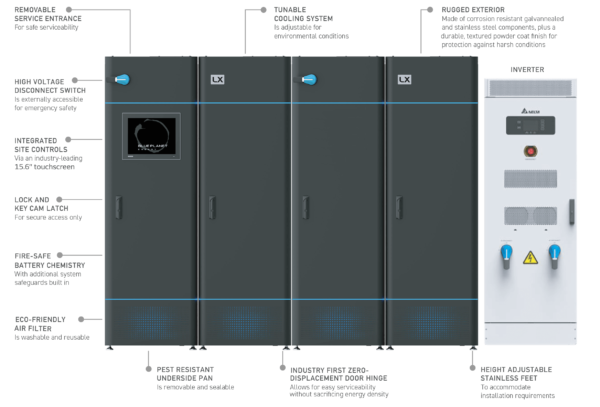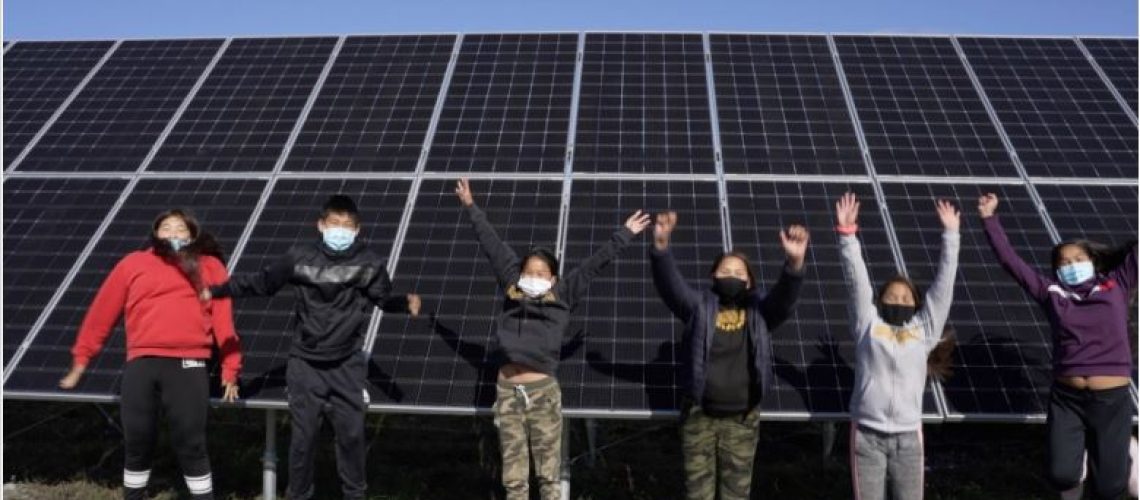Shungnak, Alaska is expected to save $200,000 a year and reduce its reliance on dirty fuel.
North of the Arctic Circle, the residents of the village of Shungnak, Alaska have become accustomed to burning diesel fuel for its electricity. In recent months, the village has paid $8.25 or more to keep its smelly, loud diesel power plants running.
However, a solar plus battery energy storage project funded by the US Department of Agriculture and the Northwest Arctic Borough is set to fundamentally change how the village sources its electricity. With equipment developed by Blue Planet Energy, the solar and battery project forms a microgrid that is designed to meet the numerous challenges of operating in an extreme climate.
A 225 kW solar array offsets much of the village’s energy needs, which generally ranges between 200kW and a peak of 300kW. LG 405 W NeON 2 Bifacial solar modules were selected for the array.
The microgrid is intelligently designed to operate and supply power in times where diesel generation would be most expensive. Diesel fuel transportation and maintenance costs are particularly high in remote, cold climates in freezing temperatures, and the microgrid can respond and dispatch power at those times of highest cost.
As much as 25,000 gallons of diesel burn will be avoided as a result and based on a $7-$8 cost per gallon, this equates to a savings of $200,000 a year.
“Producing power in rural Alaska is immensely difficult, between transporting fuel into town by plane or boat and battling temperatures that can freeze generator engines,” said Ava Gibson, head of sales for Blue Planet Energy. “Milestone projects such as this are an exciting promise to the people of both Alaska and rural communities around the world for an energy resilient future.”
It can also respond to power outages from the complex, and mostly autonomous diesel plant, which is a particularly dangerous problem, when temperatures reach as low as -20 degrees to -40 degrees F.
“Thanks to the energy storage system, we can turn the diesels off but keep the lights on in the community. It also gives the local utility the ability to run on 100% clean energy for hours at a time,” said Rob Roys, CIO, Launch Alaska.
The microgrid is also composed of 12 units of 32 kWh Blue Ion LX battery storage cabinets installed by Alaska Native Renewables Industries in cooperation with local utility Alaska Village Electric Cooperative and the nonprofit Launch Alaska.

The Blue Ion LX battery is a particularly resilient system, with a 21-year life expectancy, and is ruggedized to be able to support energy where it is critical, like in emergency services or healthcare, or for businesses where energy uptime is essential. The batteries can operate in conjunction with the larger grid or operate as a completely independent microgrid.
The cabinet comes with a tunable cooling system that is adjustable for varied environmental conditions. The exterior is made of a corrosion resistant galvannealed and stainless-steel material, finished with a textured powder coat for harsh condition resistance. It has a low fire-risk lithium ferro-phosphate battery.
This was the local utility’s first foray into energy storage, which was met with resistance at first, due to the complexities of Shungnak’s mostly autonomous diesel plant. “We’ve been hesitant to jump into energy storage for a number of reasons, but Blue Planet Energy’s battery technology and chemistry is the best available for rural communities,” said Bill Stamm, president and CEO of Alaska Village Electric Cooperative.



